Campus Exchange
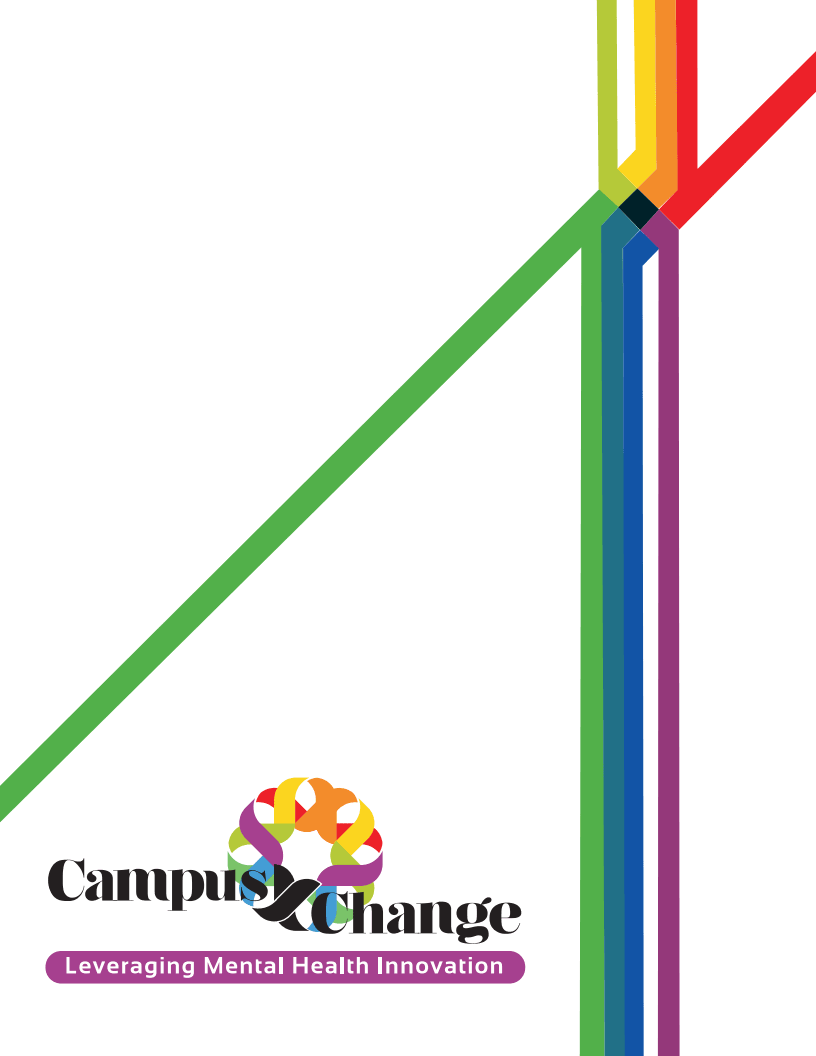
Thank you for attending Campus Exchange, 2015!
The event focused on mobilizing the exciting outcomes and resources created by the Mental Health Innovation Fund (MHIF) projects.
The Centre for Innovation in Campus Mental Health would like to thank all of the presenters, facilitators, volunteers and participants for making this event such a success. Please check out the links below for the event programme, summaries of the sessions, key learnings, as well as evaluation and feedback from participants.
Download Event ProgrammeProgram at a Glance
Below you will find a preliminary program for the upcoming Campus Exchange Event. Find more information about each session by clicking on the titles. A more detailed version of the program will be posted here in the coming weeks.
Day 1 – June 8, 2015
| 8:30 – 9:30 | Registration & Breakfast |
| 9:00 – 5:00 | Ontario Counselling Centre Directors Division Meeting (OUCHA members only) |
| 9:30 – 12:00 | WORKSHOP SESSIONS Workshop 1: Academic Accommodation for Students with Mental Health Disabilities: Findings and Recommendations Workshop 2: Inside and Out of Peer Navigation |
| 10:30 – 10:45 | BREAK |
| 10:45 – 12:00 | Workshop 1: Continued Workshop 2: Continued |
| 12:00 – 1:00 | LUNCH |
| 1:00 – 1:30 | Mental Health Wellness Activity |
| 1:30 – 3:00 | Workshop 1: Continued Workshop 2: Continued. |
| 3:00 – 3:45 | BREAK |
| 3:45 – 5:30 | Workshop 1: Continued Workshop 2: Continued |
| 5:45 – 7:00 | Reception & Overview of New MHIF Projects (Round 3) |
Day 2 – June 9, 2015
| 8:30 – 10:00 | Registration, Breakfast & Display Booths |
| 8:30 – 10:00 | Stakeholder / Professional Association Meetings |
| 10:00 – 10:15 | WELCOME & INTRODUCTIONS |
| 10:15 – 11:15 | MHIF SESSIONS
|
| 11:15 – 11:30 | BREAK & DISPLAY BOOTHS |
| 11:30 – 12:00 |
|
| 12:00 – 1:00 |
|
| 12:30 – 1:30 | LUNCH |
| 1:30 – 2:00 | Mental Wellness Activities |
| 2:00 – 3:00 |
|
| 3:00 – 3:15 | BREAK & DISPLAY BOOTHS |
| 3:15 – 4:15 |
|
| 4:30 – 6:30 | OUCHA Annual General Meeting |
Sessions
Academic Accommodation for Students with Mental Health Disabilities – Findings and Recommendations
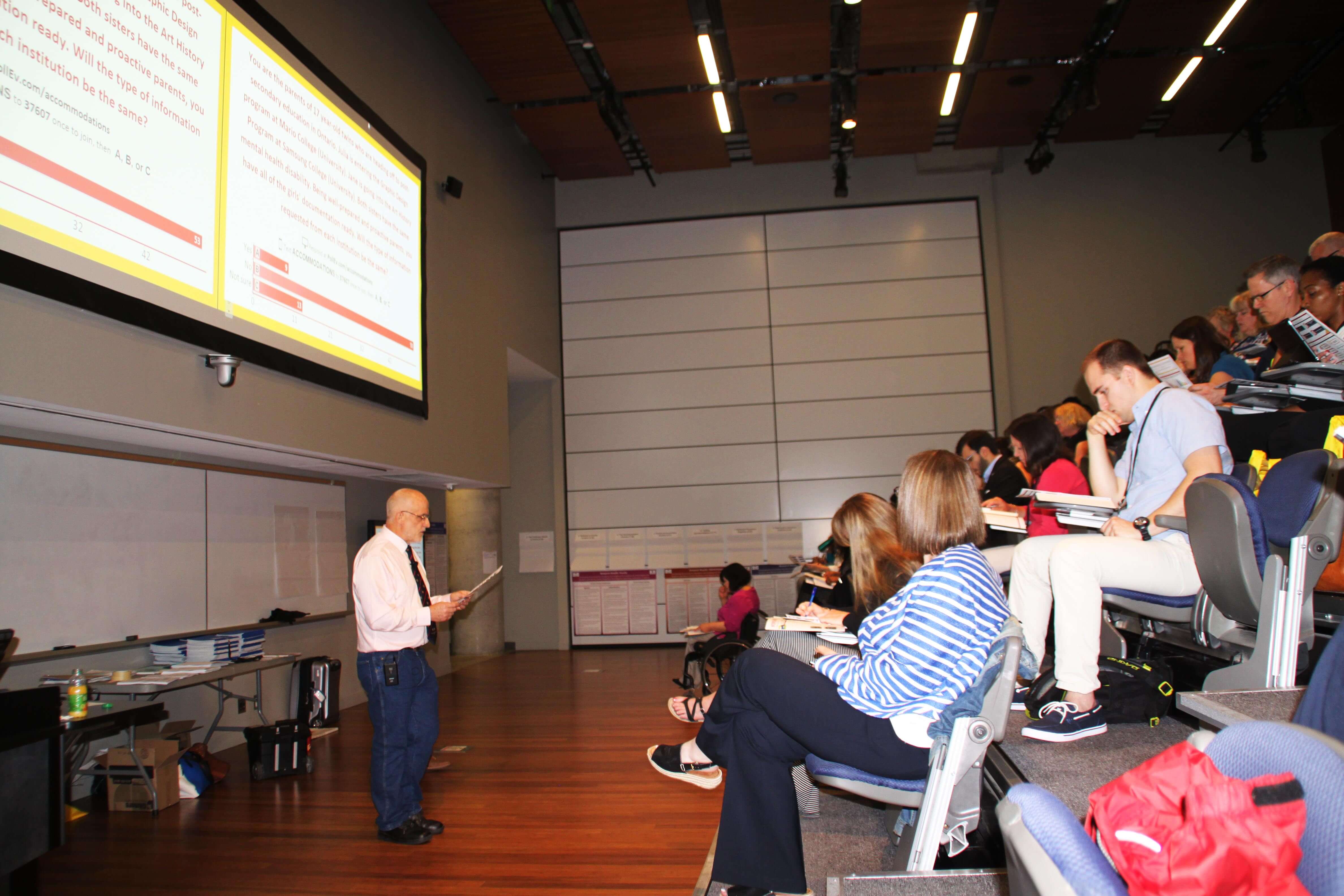
Monday June 8th, 2015 from 9:30 am – 5:30 pm
Workshop Overview
The researchers will share the final results of their 30-month project on academic accommodations for students with mental health disabilities. The presentation will focus on each of the three key goals of the project:
- Documentation Standards and Guidelines: The researchers will share their recommendations which are the result of extensive consultations with stakeholders across the province, with the Ontario Human Rights Commission, and with best-practice sites in Canada and the UK.
- The Student Handbook on Post- Secondary Students with Mental Health Disabilities –A guide to academic accommodations and managing your mental health while on Campus. Copies of this guide will be shared with the participants
- Information and training resources: Two resources have been developed and will be shared with the participants:
- Online training modules: Each of the eight short modules (3 to 5 minutes in length) addresses a specific accommodation issue and reflects best practice in how to accommodate students with mental health disabilities. The topics covered in these modules address the needs of students, disability advisors, faculty members and administrators. A selection of these modules will be shared with the participants
Student of Concern Chart: This is a chart for faculty and staff which offers guidance on what to do in specific situations of concern. The template can be adjusted to reflect practices and services at each specific institution.
- Online training modules: Each of the eight short modules (3 to 5 minutes in length) addresses a specific accommodation issue and reflects best practice in how to accommodate students with mental health disabilities. The topics covered in these modules address the needs of students, disability advisors, faculty members and administrators. A selection of these modules will be shared with the participants
Facilitators
- Dr. Mike Condra, Director, Health, Counselling and Disability Services, Queen’s University
- Eleanor Condra, Research Consultant, St. Lawrence College
- Sarah Gauthier, Research Assistant
- Helen Gillis, Research Assistant
Downloads
- Academic Accommodations PowerPoint
- Accommodating Students Handbook
- Behaviour of concern chart (Empty)
- Behaviour of concern chart (Filled)
- College Documentation Handout
- University Documentation Handout
- Functional Limitation Form
- Developing Documentation Standards and Guidelines for Academic Accommodations
- Video Series Accessible Version
Inside and Out of Peer Navigation
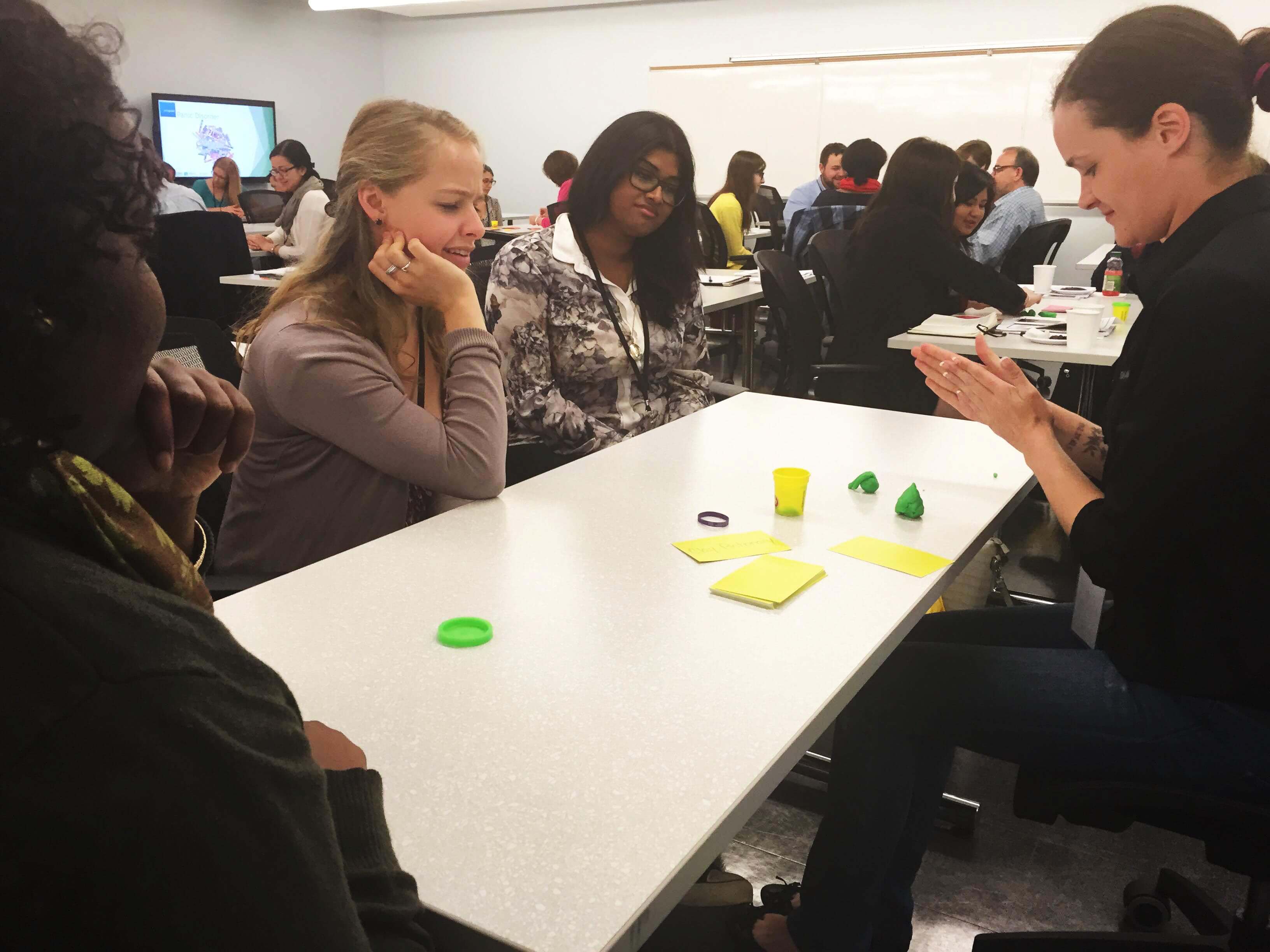
Monday June 8th, 2015 from 9:30 am – 5:30 pm
Workshop Overview
This workshop explored two sides of peer navigation, examining important aspects of self-care and personal resiliency for peer leaders/mentors, and focusing on building skills in peer navigation to better serve students seeking guidance.
The morning session was Nichole Roy and a student leader will provide Peer Navigation training based on the model developed at Northern College. And the afternoon session was led by Dana McIntyre and Robert Malowany of George Brown’s Peer Connect and Student Academic Success Initiatives.
Facilitators
- Diana McIntyre, Coordinator, Student Success, George Brown College
- Robert Malowany, Counsellor, George Brown College
- Nichole Roy, Student Advisor & Mental Health First Aid Instructor, Northern College
- Tiffany Wallace, Student Representative, Northern College
Downloads
Key Considerations for Designing and Implementing a Peer Mentoring Program
Tuesday June 9th, 2015 from 10:15 – 11:15 am
Workshop Overview
The M2 Peer Mentoring Program was designed and rigorously evaluated with the intention of sharing the program model and materials with colleges and universities across the province.
The presenters shared high-level findings from the pilot program and key considerations for designing and implementing this type of program, including:
- Program Development
- Peer Mentor Training
- Program Resource Manual
Presenters
Mira Dineen, Coordinator, M2 Peer Mentoring Program, Queen’s University
Mira Dineen received her BA degree in global development studies and human geography from Queen’s University. She has worked as a Research Assistant for a poverty-reduction organization and is co-author of Persistent Poverty: Voices from the Margins (Between the Lines: Toronto, ON). She is currently the Coordinator of a peer mentoring program for students with mental health issues at Queen’s University. She can be reached by email at: mira.dineen@queensu.ca
Dr. Mike Condra, Director, Health, Counselling and Disability Services, Queen’s University
Mike Condra received a B.A from the National University of Ireland, and a M.A. and Ph.D. from Queen’s University in Kingston, Ontario, Canada. He is currently the Director of the Department of Health, Counselling and Disability Services, and an Adjunct Assistant Professor in the Department of Psychology at Queen’s University. He can be reached by email at condram@queensu.ca
Downloads
- M2 Peer Mentoring PowerPoint
- M2 Peer Mentoring Program Resource Manual
- Thematic Outline of Learning Outcomes
Good2Talk
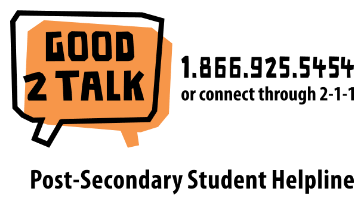
Tuesday June 9th, 2015 from 10:15 – 11:15 am
Workshop Overview
In 2013, Kids Help Phone, ConnexOntario, Ontario211 and the Ontario Centre of Excellence for Child and Youth Mental Health partnered to begin Good2Talk, a new helpline which provides free, professional counselling and information and referrals for mental health, addictions and well-being to Ontario post-secondary students. Good2Talk, which is fully funded by the Ontario Government, and delivers service in both English and French, received nearly 13,000 calls in its first year providing essential support to students. As the first helpline of its kind in Canada, and one of the first in the world, Good2Talk is paving the way to understanding how best to provide professional counselling and information and referrals to students when on-campus services are unavailable.
This presentation looked at Good2Talk’s first three years of service delivery. In addition, preliminary evaluation results were presented which demonstrate the impact of the services delivered by the helpline.
Presenters
Alisa Simon, Vice President, Counselling Services & Programs (Kids Help Phone)
As Vice-President of Counselling Services and Programs at Kids Help Phone, Alisa Simon heads the organization’s evaluation and knowledge mobilization work, and is also responsible for its organization-wide counselling. Alisa often speaks on behalf of Kids Help Phone at national and international conferences, representing Kids Help Phone with organizations such as Child Helpline International and the National Alliance for Children and Youth, where she currently serves on the board of directors. Phone: (416) 581-8975Alisa.simon@kidshelpphone.ca
Tara McFadden, Program Associate (The Ontario Centre of Excellence for Child and Youth Mental Health)
Tara McFadden is a Program Associate at the Ontario Centre of Excellence for Child and Youth Mental Health and is the project lead for the Good2Talk evaluation. She holds a M.Ed. from the University of Saskatchewan in School and Counselling Psychology. Prior to working at the Centre, Tara worked in the education system as a Psychometrist using assessment to identify, support and advocate for students and their individual learning needs. In her spare time she enjoys running, spending time with family and a good cup of tea. Phone (613)-737-2297 Email: tamcfadden@cheo.on.ca
Bridging the Gap from Hospital to University
Tuesday June 9th, 2015 from 10:15 – 11:15 am
Workshop Overview
The NAvigaTe Project is a partnership between Ryerson University, York University, University of Toronto and Women’s College Hospital and was funded through the Ministry of Training Colleges and Universities Mental Health Innovation Fund from 2013 to 2015.
The NAvigaTe program was designed to provide post-secondary students who have had a hospital stay with: 1) a better understanding and ability to manage their illness/issues, medication (if applicable) and symptoms; 2) an understanding of how to best utilize available resources on and off campus in order to return to and continue their academics; 3) to feel supported in their reintegration into their academic and social environments; and 4) with a better understanding of early warning signs and when to seek out the support they need. By connecting students to key resources, enhancing their understanding of their illness, challenges, symptom management, triggers, etc., the program provides early intervention support that was previously unavailable, thereby decreasing the risk of relapse, crisis, and need for hospital (emergency and inpatient) re-admission.
The workshop focused on describing the program, presenting quantitative and qualitative data collected as well as lessons learned from the one year implementation of NAvigaTe. The session also included a walk-through of the care pathway and the toolkit using case examples.
Presenters
Dr. Su-Ting Teo, Director of Student Health and Wellness, Ryerson University
Su-Ting Teo is the Director of Student Health and Wellness at Ryerson University with almost 15 years’ experience in Student Affairs as a physician and administrator. Dr. Teo has been involved in advocating for, collaborating on, and leading post-secondary health and mental health initiatives at the local, provincial, and national levels. Phone: 416-979-5000 x. 6587 Email: s4teo@ryerson.ca
Sarah Bell, NAvigaTe Transition Coordinator (Registered Nurse)
Sarah Bell has been the Transition Coordinator for the NAvigaTe Program since February 2014. She is a graduate of the Bloomberg Faculty of Nursing at the University of Toronto and has previous degrees in Kinesiology and Health Science from York University, and a Masters in Public Administration from Queens University. Phone: 416-978-6945 Email: sarahv.bell@utoronto.ca
Thought Spot – Addressing Barriers to Access
Tuesday June 9th, 2015 from 11:30 – 12:00 pm
Workshop Overview
This presentation described Thought Spot, a student-led digital innovation project. The purpose of Thought Spot was to bring students together to address barriers to accessing mental health- and addictions-related services by using web-based and mobile interactive mapping technologies. Taking a holistic, wellness-oriented approach, CAMH, along with partners at Ryerson University, OCAD University, the University of Toronto and Connex Ontario, provided resources to participating students to create mythoughtspot.ca. What resulted was a dynamic, interactive, updatable map that can be crowdsourced, which includes over 1000 “thoughtspots”: mental health, addictions and wellness services across the GTA.
Launched in August, 2014, the website was then the focus of a November, 2014 hack event called Hackathought, where 14 student-led teams were challenged to create innovative mobile approaches to the mythoughtspot website. The winning project, “Check it!”, interfaces directly with the Thought Spot map and allows participants to map and share wellness walks across the GTA. The project was then built out and integrated into a native mobile application (iOS and Android) that will be made available in May, 2015.
Presenters
Andrew Johnson, Manager, Client and Family Education & CAMH Publiciation, Centre for Addiction & Mental Health
Andrew has been mental health professional for over 15 years. His work has focused on capacity-building/knowledge exchange projects in the areas of methadone-maintenance treatment, mental health and addictions treatment within family health teams and digital innovation projects aimed at serving transition-aged youths. Phone: 416-535-8501 x36664 Email: andrew.johnson@camh.ca
Niagara Postsecondary Holistic Wellness Initiative
Tuesday June 9th, 2015 from 11:30 – 12:00 pm
Workshop Overview
This workshop described the Holistic Wellness Initiative and how builds upon an Aboriginal understanding of wellness, which views mental health from a holistic perspective that involves the four aspects of wellbeing: emotional, intellectual, physical, and spiritual.
Presenters demonstrated the online Interactive Portal and Wellness Wheel and several key components to the project’s success were discussed, including:
The universality of the Niagara Holistic Wellness support model (for all students, all people)
The development of a Wellness Directory and the practice of referral to professional practitioner
The input of Aboriginal elders, students and community members
The face-to-face component
Partnership activities with Niagara College
Presenters
Jill Brindle, Manager of Learning Services and Aboriginal Student Services, Brock University
Jill has also been project lead in developing the Niagara Post-Secondary Holistic Wellness Project. This program builds upon an Aboriginal understanding of wellness, viewing mental health holistically and taking into account emotional, intellectual, physical, and spiritual aspects of wellbeing. Phone: (905) 688-5550 Ext 3114, Email: jbrindle@brocku.ca
Sandra Wong, Aboriginal Academic Support Program Coordinator, Brock University
Sandra has helped build into this program a response to the common and unique wellness needs of Aboriginal, Metis, and Inuit students, as well as incorporation of the active knowledge and supports of Elders, Knowledge Keepers, and Service providers. Phone (905) 688-5550 Ext 5883 Email: swong2@brocku.ca
FITA – Advancing Mental Health Program Development
Tuesday June 9th, 2015 from 12:00 – 12:30 pm
Workshop Overview
The From Intention To Action Program (FITA) has completed 4 years of service to students who self-referred as “overwhelmed”. This program sees students over 12 sessions, primarily with unpaid graduate level interns who develop effective therapeutic alliances. FITA is based on findings from LOFT research and includes assessment, feedback, and commitment on the part of students. Significant improvements in grade point averages, improved study skills, increased time spent in studies, and improved mental health scores resulted.
This presentation focuses on:
Recent research conducted by FITA on overwhelmed students and outcomes measured at the end of the year.
How intervention improves mental health and academic achievement.
The role of therapeutic alliance in a holistic approach
The implications for colleges and universities that are better able to serve and retain vulnerable students.
The need to help students develop resilience which includes changing the narrative of incoming students regarding the challenges they will face and the need for self-care.
The need to develop a systemic response to support the needier students in post-secondary education (PSE) across Ontario.
The development of a FITA consortium among schools running pilots of this model and the distribution of resources to this group.
Presenters
Dr. John Meissner, C.Psych., Carlton University, FITA Project Leader,
John is a psychologist working to find real world solutions to problems that integrate research evidence into a program that creatively addresses struggles faced by students. Phone: (613) 520-2600 ext 8065 john.meissner@carleton.ca
Larry McCloskey, Director, Paul Menton Centre for Students with Disabilities, Carleton University
Larry McCloskey has worked to make accessibility effective and universal as the co-developer of FITA, the instigator of the Research and Educational in Accessibility Design (Carleton University Read Initiative) and the originator of 24-7 support services. Phone: (613) 520-2600, x 6609, larry.mccloskey@carleton.ca
On-site Mental Health Support – Sault College’s Mental Health Hub
Tuesday June 9th, 2015 from 12:00 – 12:30 pm
Workshop Overview
Sault College’s Mental Health Hub project aims to provide on-campus supports for students experiencing mental health challenges. The hub has been supported by the Mental Health Innovation Fund, and has been extended through the next two years in order to continue to provide and expand on these vital services, and to measure the success of the model.
The hub model focuses on the provision of clinical services, internal/external partnerships, mental health education, stigma reduction, culturally diverse service options, non-clinical supports, institutional support, and fiscally responsible sustainability. This workshop will describe the model, and will provide context and insights based on lessons learned in the set-up and first two years of operation.
Presenters
Morgan Levy, Mental Health Counsellor & Supervisor of the Mental Health Hub Project, Sault College.
Morgan Levy holds an M.A. in Counselling Psychology and is currently working at Sault College as both the Mental Health Counsellor and Supervisor of the Mental Health Hub Project (MHIF). As a native of Northern Ontario, where service and referral options are limited, Morgan’s passion is developing accessible mental health services for students in rural areas.
More Feet on the Ground Campaign
Tuesday June 9th, 2015 from 2:00 – 3:00 pm
Workshop Overview
The More Feet on the Ground Campaign was created with the intention of offering a comprehensive, interactive and effective approach to educating and training campus community members. Deliverables of the campaign included an online training module, an on-campus psycho-educational workshop series, and a regional mental health forum.
This presentation provides an overview and demonstration of the components of the More Feet on the Ground campaign. Specifically:
Online Training Module: An overview of the purpose, development, implementation, and impact of an online mental health education training module.
Psycho-Educational Group Information and Skills Development Series: An overview of the purpose, development, implementation, and impact of the psycho-educational group information and skill development series facilitated at Brock University and Niagara College. Best-practices and opportunities for replication on other campuses will be explored and demonstrated.
Regional Mental Health Forum: Highlight of the results and impact of hosting a regional mental health forum for postsecondary institutions, mental health service providers, and community service agencies.
Presenters
Melodie Shick-Porter, Director of Student Health Services, Brock University
Melodie is the Director of Student Health Services, at Brock University and Co-Director of Leave The Pack Behind. She has worked in health care and nursing for over 35 years’ which extends from hospital-emergency experience, Public Health to Student Health Services (Brock and Concordia University). Melodie is instrumental in providing leadership to clinical student mental health management, health promotion and our peer educational team.
Les McCurdy-Myers, Manager, Personal Counselling Services, Brock University
Les has been counselling students for over 40 years. In addition to overseeing Brock’s Counselling Service he developed and manages Brock’s student leadership service which provides skills based training through the Foundations In Leadership Practicum series. Phone: 905-688-5550 Ext. 4123, Email: lmccurdy@brocku.ca
Mental Health and Wellbeing Credit Course
Tuesday June 9th, 2015 from 2:00 – 3:00 pm
Workshop Overview
PSYC*1400 Mental Health and Wellbeing is a for credit course recently developed in a partnership with Student Life, Student Accessibility Services and the Department of Psychology for students at the University of Guelph who have an identified mental health challenge. The presentation will provide an overview of the course procedures, content as well as its evaluation.
There are three central aims of the course including increased mental health/illness knowledge and understanding, increased academic self-efficacy in the context of mental health challenges, and awareness/practice at skills for improving wellbeing. Additionally, the course provides the opportunity to orient students to important supports available on campus, in the community and online.
Participants learned about the approach and content of the course, and the experience of implementing and evaluating the course at Guelph University, and the benefits of offering a for credit course as a powerful way of reaching students with important learning related to their mental health and academic self-efficacy.
Presenters
Dr. Margaret Lumley, Associate Professor, Department of Psychology, University of Guelph
Dr. Margaret Lumley is an Associate Professor in the Clinical Psychology program at the University of Guelph Dr. Lumley’s research examines the cognitive, emotional and interpersonal factors that contribute to emotional problems and also that support resilience and wellbeing among youth. Her research work has been funded by the Ontario Mental Health Foundation, Canada Foundation for Innovation and Ministry of Education. Phone: (226) 979-1579 Email: mlumley@uoguelph.ca
Bridging the Distance – Lessons Learned
Tuesday June 9th, 2015 from 2:00 – 3:00 pm
Workshop Overview
Bridging the Distance is about creating a safe, welcoming environment where students in distress can seek immediate assistance, come together to talk about mental health to reduce stigma and plan to create a positive climate. The Red Couch is the symbol of comfort and a focus for dialogue.
Presenters outlined each of the activities that comprise the pillars of the project. Each of the four partners developed a specific activity: distance delivery of counselling/advising services; developing a peer mentoring program; providing staff training and policy development; and the creation of an engaging website. The website was designed as a first level of support for students experiencing difficulties and provides a repository of activities and resources.
Presenters
- Colin Kelly, Director, Applied Research, Confederation College
- James Lees, Counsellor, Counselling Services, Confederation College
- Carol Prechotko, Interim Director, Counselling and Student Disability Services, Cambrian College
- Kim LaPierre, Team Lead, Student Success Services, Canadore College
- Sherri Pinder, Mental Health and Wellness Navigator, Canadore College
- Nicole Roy, Mental Health Project Coordinator/Student Advisor, Northern College
- Susan Alcorn MacKay, Project Activities Coordinator
Downloads
Campus Mental Health Partnerships – Extending the Circle of Care
Tuesday June 9th, 2015 from 3:15 – 4:15 pm
Workshop Overview
Case Management is an effective approach to supporting students with complex mental health issues. This workshop shared learnings from Georgian and Centennial Colleges’ Mental Health Innovation Project – Extending the Circle of Care: A Case Management Approach to Postsecondary Student Mental Health,
Participants learned about:
The importance of the Case Manager role on Campus
Issues to consider when implementing case management on campus
The barriers and benefits of internal and external partnerships
Frameworks and survey tools for professional development and collaborative practice
Presenters
Michelle DeIrish, Lead, Campus Mental Health Partnership Project, Centennial College
Michelle DeIrish is the Centennial College Lead for the Campus Mental Health Partnerships project. She has worked as a community-based mental health clinician, practice leader and consultant for the past eight years.
Karyn Baker, Project Lead, Campus Mental Health Partnerships Project, Georgian College
Karyn has worked in community mental health for 30 years and was the Executive Director of the Family Outreach and Response Program in Toronto for 15 years. Karyn also works as a consultant and trainer in the area of mental health recovery. 705-728-1968 ext. 1351, Email: Karyn.baker@georgiancollege.ca
Downloads
Speaking Your Language – Promoting Mental Health Awareness and Support for International Students
Tuesday June 9th, 2015 from 3:15 – 4:15 pm
Workshop Overview
The Speaking Your Language project is a tri-campus initiative between Ryerson University, OCAD University, and the University of Toronto that aimed to identify the barriers that exist for international students accessing mental health support services on campus. Working from an extensive literature review, student survey and feedback from focus groups we piloted two models of support for this vulnerable population.
This session highlighted the prominent research on international student mental health, their help seeking behaviours, perceptions of counselling, and how we managed to engage them in conversations about mental health and educate them about the realities of North American counselling practices. The session covered:
How to recognize language that international students use to talk about mental health and incorporate this into your interactions with them
What are some of international students’ key challenges and perceptions towards mental health
Opportunities and challenges in culturally or linguistically specific or counselling-centered approaches
Presenters
Arif Abu, Coordinator of International Student Services and the Speaking Your Language Project, Ryerson University
Arif is responsible for managing, developing and implementing all ISS services to enhance and support the academic and personal success of over 2000 international students at Ryerson.
Arif has previously worked at the University of Victoria, UBC (Okanagan), and most recently at UOIT all in roles supporting international students. His knowledge on the experience of international students comes from firsthand experience as well as his academic studies at the University of Windsor (MA in Political Science and BA with honors in International Relations and Development Studies). Arif is the co-Chair of Internationalization of Student Affairs committee of CACUSS and founder of INTL a professional network of CBIE dedicated in building next generation of international educators.
Downloads
Speaking Your Language PowerPoint
A Campus Wide Approach to Addressing Postsecondary Student Mental Health
Tuesday June 9th, 2015 from 3:15 – 4:15 pm
Workshop Overview
In 2012, OCAD University and Ryerson University embarked on an ambitious project to implement campus-wide, multi-level health promotion activities and mental health services on their urban commuter campuses. Their goal necessitated work on the systems-level and a need to bring together and inspire stakeholders towards a common vision of healthy campuses.
This workshop discussed how two universities well known for being hotbeds for innovation, achieved their goal, the lessons (and failures) they learned along the way, and the significant accomplishments they achieved together, and on their respective campuses. The presentation covered the major accomplishments and outputs of the project, such as earning a Statement of Commitment on Mental Well-being for Executive Offices, and inspiring the operationalization of mental health within a University’s Academic Plan. Additionally, participants were able to interact with project resources such as:
Campus Mental Health Policy Review: Policy Approaches to Post-Secondary Student Mental Health: A Scan Of Current Practice and
Mental Health Training Brief: Mental Health Training in the Postsecondary Sector
System design mapping project:
Underpinning Student Success: Opportunities for increasing mental health resiliency in first-year undergraduate students (The Gigamap)
Crisis Support Package: Supporting Students in Distress
Presenters
Dr. Su-Ting Teo, Director of Student Health and Wellness, Ryerson University
Dr. Teo has almost 15 years’ experience in Student Affairs as a physician and administrator. She is involved in advocating for, collaborating on, and leading post-secondary health and mental health initiatives at local, provincial, and national levels. 416.979.5000 ext. 6587 Email: s4teo@ryerson.ca
Jennifer Robinson, Clinical Director at the Health and Wellness Centre, OCAD University
PhD (candidate) is the Clinical Director at the Health and Wellness Centre. Phone:416.977.6000 ext. 284 email: jrobinson@ocadu.ca
Downloads
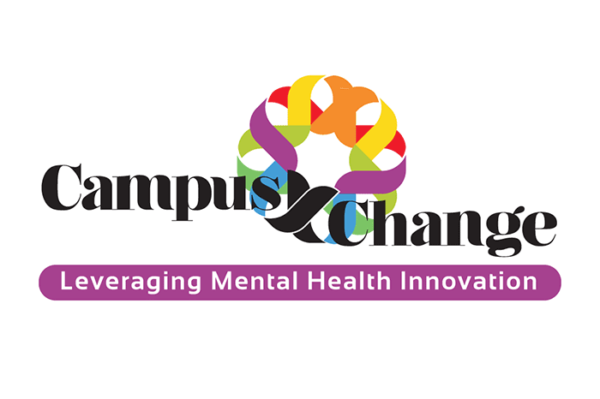
Browse Conferences
November 6th & 7th, 2014
Flourishing Campuses
October 30 & 31, 2017

